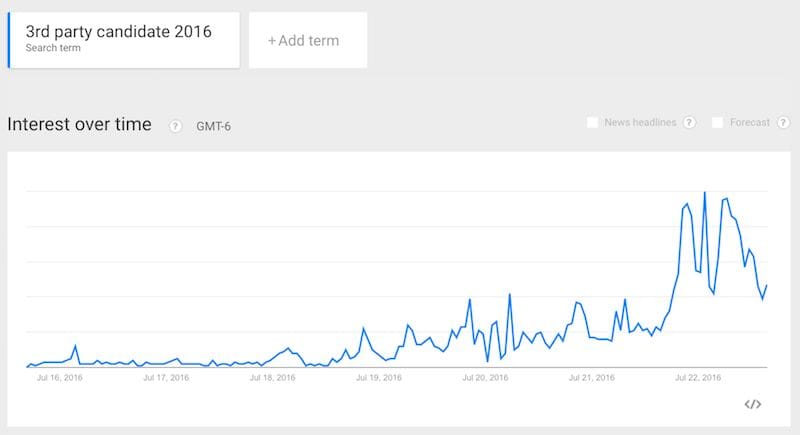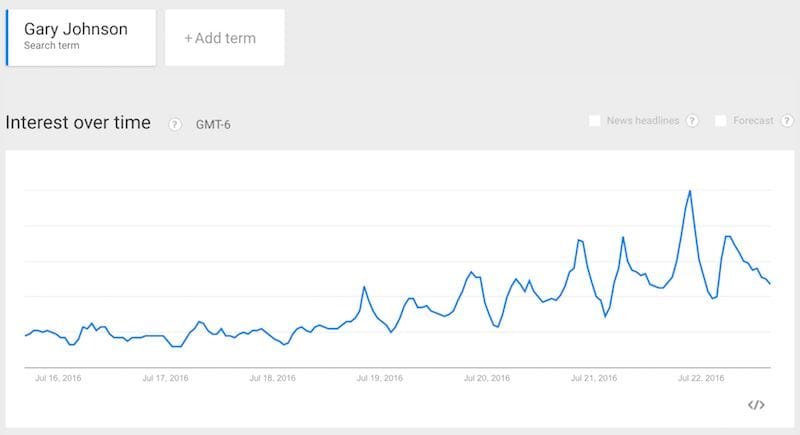Google Searches for Third Party Candidates Skyrocket after Trump's RNC Speech

As the 2016 Republican National Convention wrapped up Thursday, one aspect was clear: Americans are increasingly looking for alternative candidates outside of the two-party duopoly. According to Google Trends, searches for "3rd party candidate 2016" increased by 1,150 percent over the last week.
Interestingly, states with the highest third party candidate searches in the United States were (in order): Ohio, Missouri, Colorado, South Carolina, Alabama, Kentucky, and Michigan.

Politico reports that Ohio and Colorado are known swing states, so it is interesting that these were the #1 and #3 states whose inhabitants searched for third party candidates. Also of note, known Republican states like South Carolina, Alabama, Kentucky, and Missouri -- which are not normally a toss-up in electoral votes -- also made the top 8 list of third party candidate searches.
Yet, this shouldn't be surprising as 79 percent of Americans believe the United States is on the wrong track. Not to mention, we have the two most disliked presidential nominees in the history of modern politics.
Searches for Libertarian Party nominee Gary Johnson also received a boost during the RNC, especially after Donald Trump's speech on Thursday. Johnson has been rising in the polls for some time now and a recent NBC/Wall Street Journal/Marist poll shows him polling in double digits in Colorado and Virginia.
Searches for both Johnson and the Libertarian Party went up during the Republican Convention.

Searches for "Green Party" also increased during the the Republican Convention. It will be even more interesting to witness what happens on the Democratic side during the DNC next week. Green Party candidate Jill Stein is polling around 4 percent in the four-way race in national polls.
Bernie Sanders' candidacy brought to the forefront many issues that are on the Green Party platform and with the nomination most likely going to Hillary Clinton, many voters on the left end of the ideological spectrum are also looking for candidates that represent the interests that Sanders embodied.
As more Americans look for alternatives, one thing becomes clear: politics-as-usual must change. However, in order for third party alternatives to rise in the polls, they need their respective airtime.
This time around, Johnson is making more waves and receiving more media attention. Yet, to keep the momentum he needs to make it into the presidential debate. Johnson is polling as high as 13 percent in some states, but needs to reach the 15 percent threshold to be in the debates.
So far, the two major parties have done an exceptional job of keeping third party candidates out of the presidential debates despite calls for change.
Yet, as we have seen this election season, the time is ripe for change and an unprecedented amount of voters are looking for it.



